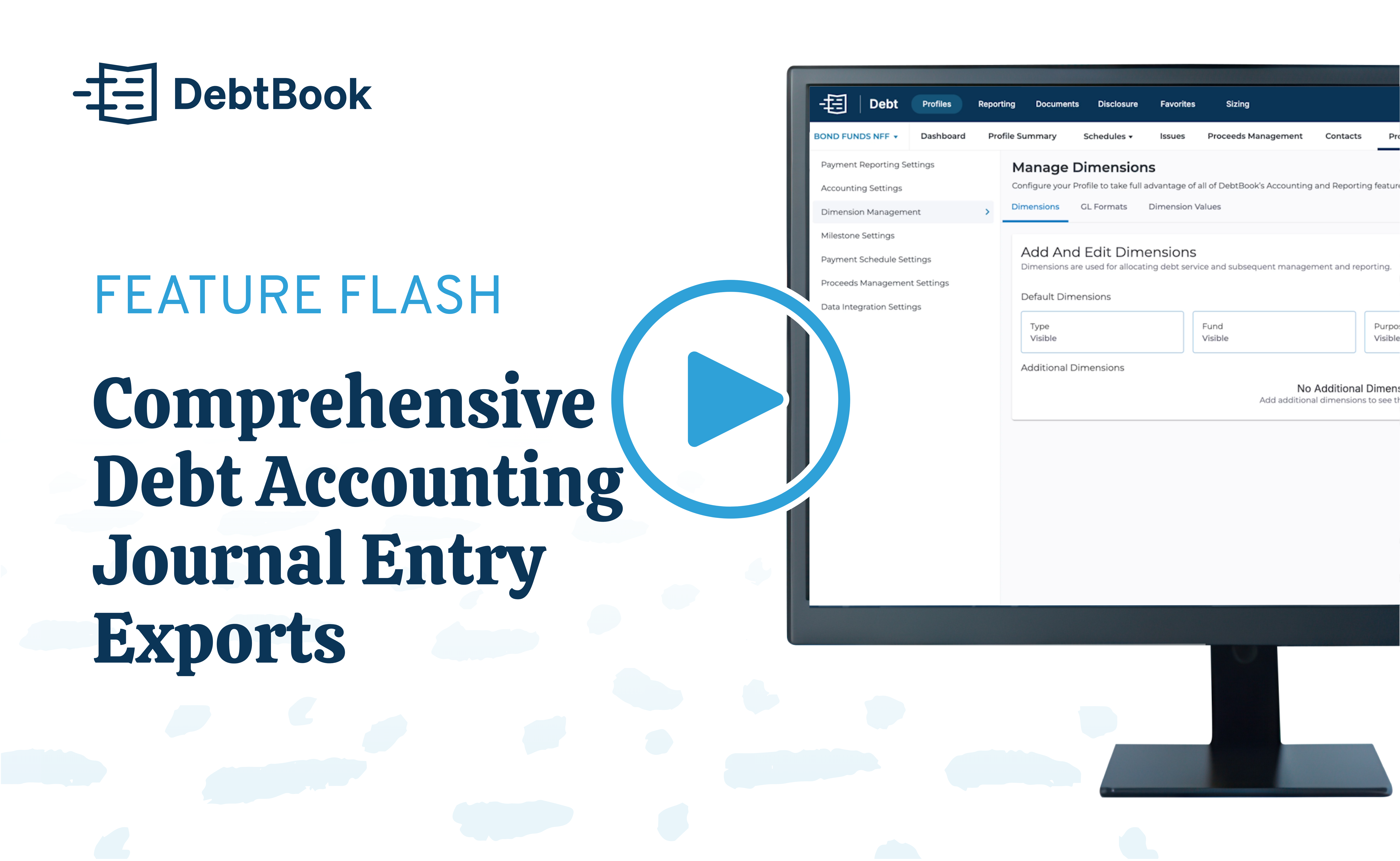Hopefully, in the course of debt management, treasurers will find themselves earning yield on their loan proceeds. And that’s great, but if the loan is tax-exempt, you may owe the IRS a rebate on investment income.
DebtBook recently hosted a panel discussion for the North Carolina Local Government Budget Association (NCLGBA) featuring several experts in the area of debt management, including Kim Hoyt, president of Bingham Arbitrage Rebate Services.
In her segment, she offered a helpful introduction to arbitrage rebate and yield restriction payments.
Continue reading for a brief synopsis.
Why Borrowing with Tax-Exempt Bonds Comes with Rules
To complete projects, local governments can borrow funds at tax-exempt rates, though this flexibility does come with certain expectations and compliance requirements.
First and foremost, the IRS expects borrowers to spend loan proceeds in a timely manner, but sometimes, life gets in the way. Project delays happen. Sometimes a local government can find itself holding funds for a considerable amount of time and earning more yield than they expected.
What is Arbitrage in Public Finance?
Earning more money on a tax-exempt loan than is allowed under IRS rules is a form of arbitrage. If, as a treasurer, you have outstanding proceeds three years after the issuance date, you are required to cap yields on your investments and pay an “arbitrage rebate” to the federal government.
This circumstance can arise when borrowing rates (generally longer term rates) are low and reinvestment rates (generally shorter term) are higher. This recently happened when the effective federal funds rate had increased up to more than 2% prior to COVID-19.
How Arbitrage Rebates are Calculated
Arbitrage rebates should be calculated in installment periods no longer than every five years over the life of the loan. If your investment yield is greater than your bond yield over that five-year window, you would pay the difference to the IRS.
What are Yield Restrictions?
In addition to arbitrage rebates, yield restriction calculations should be performed once you have completed the three-year temporary period on your loan. You are allowed to earn investment yield equivalent to your bond yield plus 0.125%. Any amount in excess of that limit should be paid to the IRS as a yield reduction payment.
Why Smart Debt Management Matters
Navigating these requirements is part of why it’s essential to practice smart debt management. Explore local government treasury management software to help navigate arbitrage rebate requirements. For instance, depending on market returns from year to year, it is possible that you can owe a yield reduction payment for one year and not owe an arbitrage rebate over the five-year window. There are small issuers and spending exceptions, and it’s important to review these requirements to verify if you qualify.
In rare instances, the federal government may deem that the tax exempt debt you’ve issued should be deemed taxable due to improper management. While this is unlikely, it is certainly something you should avoid.
Best Practices for Arbitrage Rebate Compliance
To prepare for arbitrage rebate compliance, be sure to practice consistent record keeping and document your processes. The IRS requires governments to retain records on tax-exempt issues long after the bonds have been entirely paid off. Hang on to your bond transcripts, investment statements and any rebate reports or calculations, and be sure to consult requirements before disposing any documents.
Frequently Asked Questions
Q: What is an arbitrage rebate?
A: An arbitrage rebate is a payment made to the IRS when investment earnings on tax-exempt bond proceeds exceed the bond's yield. Local governments are required to calculate arbitrage rebates at least every five years during the life of a loan.
Q: When do arbitrage rebate requirements apply?
A: Arbitrage rebate requirements apply when loan proceeds remain unspent after three years and generate investment income above IRS limits. Exceptions exist for small issuers and certain spending patterns, so treasurers should confirm eligibility.
Q: What is yield restriction in municipal finance?
A: Yield restriction limits the investment return you can earn on tax-exempt bond proceeds after the three-year temporary period. Governments are allowed to earn their bond yield plus 0.125%. Anything above that must be paid to the IRS as a yield reduction payment.
Q: What's the difference between arbitrage rebate and yield restriction?
A: Arbitrage rebate is based on comparing investment yield to bond yield over a five-year window, while yield restriction is an ongoing rule applied after the three-year temporary period. In some cases, a government may owe a yield reduction payment without owing an arbitrage rebate.
Disclaimer: DebtBook does not provide professional services or advice. DebtBook has prepared these materials for general informational and educational purposes, which means we have not tailored the information to your specific circumstances. Please consult your professional advisors before taking action based on any information in these materials. Any use of this information is solely at your own risk.





.jpg)
.jpg)
